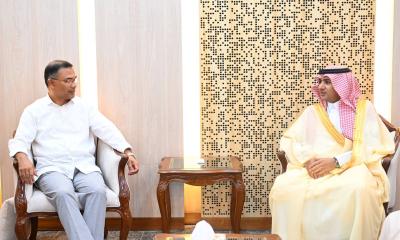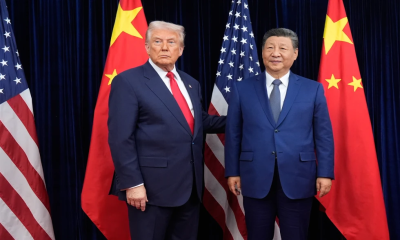The interim government has stated that the decision to dismantle the National Board of Revenue (NBR) and replace it with two separate entities is aimed at improving efficiency, eliminating conflicts of interest, and strengthening Bangladesh’s overall tax system.
In a statement issued by the Chief Adviser’s Office on Tuesday (13 May), the government said the NBR—established more than five decades ago—has consistently failed to meet revenue targets.
Bangladesh’s current tax-to-GDP ratio stands at approximately 7.4%, one of the lowest in Asia, far below the global average of 16.6%.
To address this, the government has approved a major structural reform that will dissolve the NBR and create two distinct wings under the Ministry of Finance: the Revenue Policy Division and the Revenue Management Division.
The statement highlighted that separating tax policy-making from tax administration would bring much-needed transparency and accountability to the revenue sector.
Conflict of Interest and Governance Issues
According to officials, the current arrangement has enabled serious conflicts of interest. Tax collectors and policymakers working under the same umbrella have, in many cases, prioritized collection over fairness, and lacked measurable performance indicators.
“Enforcement officials were often found negotiating informal settlements with tax defaulters,” said a senior finance ministry official. “There was no system in place to hold them accountable or link performance with career growth.”
Aimed at Expanding the Tax Net
The government noted that the new Revenue Policy Division will handle tax laws, rate-setting, and international treaties, while the Revenue Management Division will focus solely on enforcement and compliance. This clear division of roles is expected to increase direct tax collection and reduce the country’s reliance on indirect taxes.
The reform also seeks to address widespread governance weaknesses and bureaucratic overlaps that have long hindered investment and undermined confidence in the tax system.
Staff Concerns
The statement acknowledged internal resistance and anxiety among long-serving tax and customs officers, some of whom fear being sidelined in the new system. However, the government assured that institutional reform is essential to meet the country’s development goals and to increase the tax-to-GDP ratio to at least 10%.
Not Just Restructuring, But Reform
Calling it more than a bureaucratic reshuffle, the interim government said the reform marks a shift toward building a “modern, fair, and development-focused” revenue framework. It also emphasized that the success of the reform will depend on professionalizing the tax service and ensuring investor-friendly, evidence-based policy design.
“Without a strong and transparent revenue system, we cannot realize the aspirations of our people,” the statement concluded.












-20260222063838.webp)





-20260221022942.jpg)
-20260221022827.webp)














